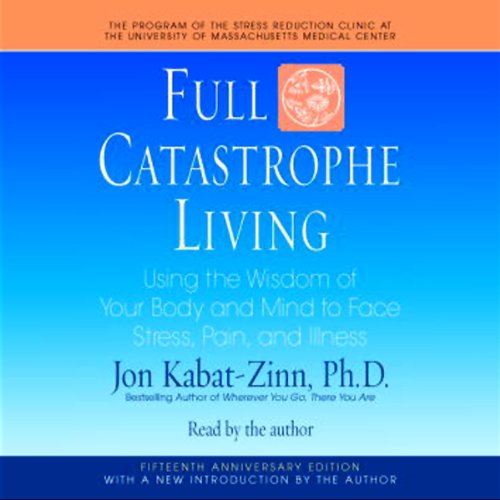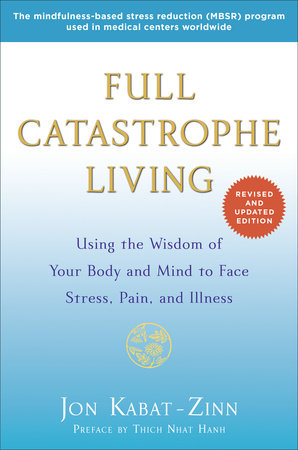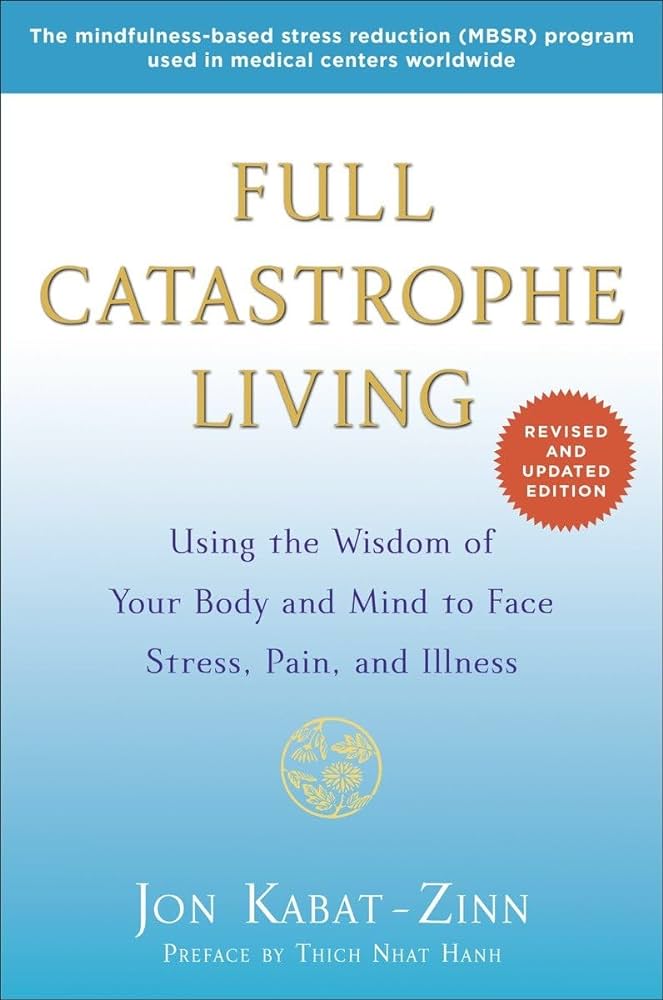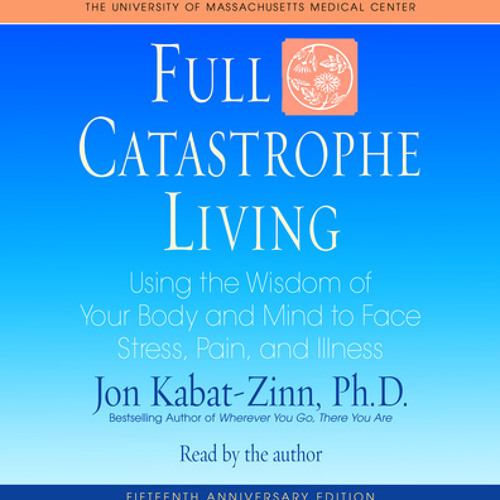Jon Kabat-Zinn’s “Full Catastrophe Living” audiobook explores mindfulness-based stress reduction. It offers practical techniques for coping with stress and improving wellbeing.
Jon Kabat-Zinn, the founder of Mindfulness-Based Stress Reduction (MBSR), presents a transformative guide in “Full Catastrophe Living. ” This audiobook teaches listeners how to incorporate mindfulness into daily life. It provides practical exercises and insights to help manage stress, pain, and illness.
Based on scientific research, the methods Kabat-Zinn shares aim to enhance mental and physical health. This audiobook is ideal for anyone seeking a holistic approach to wellbeing. Its teachings are accessible and applicable to people of all ages and backgrounds. Embracing mindfulness can lead to profound changes in one’s life, promoting greater peace and resilience.

Introduction To Jon Kabat-zinn And Mindfulness
Jon Kabat-Zinn is a pioneer in the field of mindfulness. He created the Mindfulness-Based Stress Reduction (MBSR) program. This program helps people reduce stress and improve their well-being. Kabat-Zinn is also an author and a teacher. He has written many books on mindfulness, including “Full Catastrophe Living”. His work has influenced many people around the world.
The MBSR program was born in 1979. It started at the University of Massachusetts Medical School. Kabat-Zinn saw that mindfulness could help people with chronic pain and stress. He combined meditation and yoga to create the MBSR program. This program is now used in many hospitals and clinics. It has helped thousands of people manage their stress.

Core Concepts Of Full Catastrophe Living
Full Catastrophe Living is about accepting life as it is. Life includes joy, sorrow, and everything in between. Jon Kabat-Zinn teaches us to embrace all experiences. This approach helps us deal with stress and pain. The book focuses on mindfulness. Mindfulness means being present in the moment. It helps us observe our thoughts without judgment. By practicing mindfulness, we can reduce our stress. We learn to respond, not react, to challenges. This helps us live a more balanced life.
Life is full of ups and downs. Embracing life’s fullness means accepting both the good and the bad. It means not running away from problems. Instead, we face them with courage. Jon Kabat-Zinn encourages us to live fully. This means being present in each moment. It means not wishing things were different. By embracing all of life, we find peace. We become more resilient and strong.
The Seven Pillars Of Mindfulness
Non-judging means observing without labeling thoughts as good or bad. Patience is about understanding that things unfold in their own time. Both qualities help in staying present and accepting experiences as they are.
A beginner’s mind sees everything with fresh eyes. Trust involves having confidence in oneself and the process. These qualities open the door to new possibilities and insights.
Non-striving means not trying to achieve a particular goal. Acceptance involves acknowledging things as they are. Letting go is about releasing attachments to outcomes. Together, they promote a state of peaceful awareness.
Mindfulness-based Stress Reduction (mbsr) Program
The MBSR program lasts for eight weeks. Participants meet once a week. Each session lasts 2.5 hours. A one-day retreat is also part of the program. The retreat happens on a weekend. Participants practice mindfulness daily. They use guided meditations and exercises.
The MBSR program includes many techniques. Body scan meditation is one of them. This technique helps people notice their bodies. Mindful breathing is another key practice. It helps to focus on the present moment. Yoga is also part of the program. It helps with both mind and body awareness. Participants also practice mindful walking. This helps them stay in the moment while moving.
Mindfulness In Daily Life
Start by paying attention to your breathing. Notice each breath as it comes in and goes out. This simple practice helps you stay in the present moment. Bring this awareness to your daily tasks. While eating, focus on the taste, texture, and smell of your food. This makes every meal more enjoyable and meaningful.
Staying mindful can be hard. Distractions are everywhere. Make a habit of returning to your breath. Use reminders to stay on track. Set alarms or place sticky notes around your home. Practice patience and kindness with yourself. Remember, it’s okay to start small and build up gradually.
Scientific Evidence And Critiques
Studies show that Mindfulness-Based Stress Reduction (MBSR) helps reduce stress. Many people feel better after practicing MBSR. Scientists have found that MBSR improves mental health. People report less anxiety and depression. Schools and hospitals use MBSR to help students and patients. Many health experts support the use of MBSR.
Some critics argue that MBSR lacks enough evidence. They believe more studies are needed. Others say MBSR effects are not long-lasting. Critics also worry about the cost of MBSR programs. Supporters counter that many people benefit from MBSR. They say the positive effects are worth the cost. More research can help understand MBSR better.
Personal Stories And Testimonies
Many people have found peace through Mindfulness-Based Stress Reduction (MBSR). Lives have changed for the better. One woman healed from chronic pain. A man managed his anxiety without medication. Another person overcame depression and found joy again. MBSR teaches simple yet powerful techniques. These techniques help in coping with stress. Real people share their success stories. Each story is unique and inspiring.
Mindfulness has touched many lives in different ways. Students use it to focus better. Workers find it helps them manage stress. Parents become more patient and understanding. Athletes improve their performance through mindfulness. Even seniors find new energy and peace. These experiences show the power of mindfulness. They highlight its universal appeal and effectiveness.

Expanding Beyond Stress Reduction
Mindfulness is changing education. Students learn better with mindfulness. Teachers report less stress. Mindfulness helps with focus. Healthcare also benefits. Patients feel calmer. Doctors and nurses use mindfulness. They face less burnout. Mindfulness improves patient care. Both fields see great results.
Mindfulness will grow more. More schools will use it. More hospitals will teach it. Research shows many benefits. Companies will also join in. They will see happier workers. Mindfulness will be everywhere. It will help many people. The future looks bright with mindfulness.
Conclusion
Jon Kabat-Zinn’s “Full Catastrophe Living” audiobook offers transformative insights on mindfulness and stress reduction. Perfect for those seeking a balanced life. Explore practical techniques to enhance mental well-being. This audiobook is a valuable resource for personal growth. Embrace mindfulness and improve your quality of life today.



